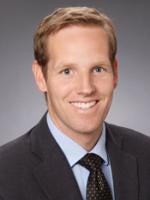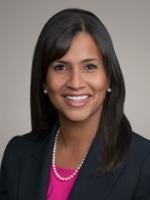Client, with the assistance of its attorney, engages in illegal conduct. Client places money received from its illegal conduct in the attorney’s trust account. Attorney absconds with these illegal funds. When the client brings a non-dischargeability action in the attorney’s bankruptcy case, may the attorney defend the action under the unclean hands doctrine because the funds he stole were gained by the client through its own illegal conduct? As a matter of public policy, the Ninth Circuit has answered this question in the negative. In Northbay Wellness Group, Inc. v. Beyries (In re Beyries), 2015 WL 3529634 (9th Cir. 2015), the attorney, Michael Beyries, served on Northbay Welness’ board of directors and acted as its counsel. Northbay engaged in business in California as a medical marijuana dispensary, a business illegal under federal law. Northbay deposited $25,000 into Beyries’ trust account to hold for use as a legal defense fund for Northbay and its employees. Beyries stole the money, resigned from Northbay’s board, and absconded.
Eventually Beyries filed bankruptcy, and Northbay filed a non-dischargeability action for the theft of its trust funds. Although it found that such conduct would result in a judgment of non-dischargeability, the bankruptcy court dismissed the adversary proceeding because the funds held by Beyries in trust were the proceeds of Northbay’s own illegal conduct. The U.S. District Court affirmed the dismissal, but the Ninth Circuit reverse.
The Ninth Circuit’s opinion was based on public policy grounds. The court noted that a plaintiff seeking a denial of the discharge of his debt must come to the court “with clean hands,” and a plaintiff who does not cannot obtain a judgment of non-dischargeability. However, the court noted that a defendant wrongdoer cannot always “retain the profits of his wrongdoing merely because the plaintiff himself is possibly guilty of transgressing the law.” In addition, the court held that the unclean hands doctrine should not be strictly enforced when doing so would frustrate an important public policy. Consequently, courts are required to balance the plaintiff’s wrongdoing against that of the defendant. In the present case, Beyries was on Northbay’s board of directors and, in the court’s opinion, therefore as guilty of the illegal conduct as was Northbay. Significantly, Beyries was Northbay’s attorney, owing it a fiduciary duty to maintain the funds placed with him in trust by his client: “A lawyer’s ‘[m]isappropriation of a client’s prop is a gross violation of general morality likely to undermine public confidence in the legal profession and therefore merits severe punishment.’” (citing Greenbaum v. State Bar, 544 P.2d 921, 928 (Cal. 1976).
Weighing the relative wrongdoing, the court determined that the doctrine of unclean hands cannot prevent recovery of funds stolen from a client. As a result, the Ninth Circuit held the bankruptcy court abused its discretion in dismissing Northbay’s complaint for non-dischargeability.




 />i
/>i

